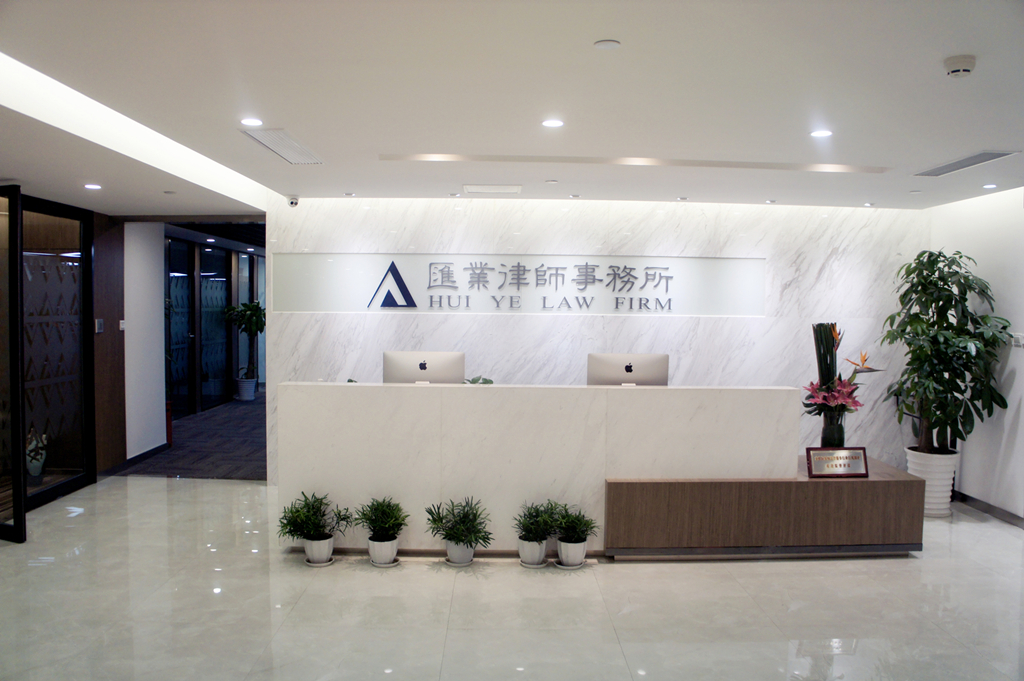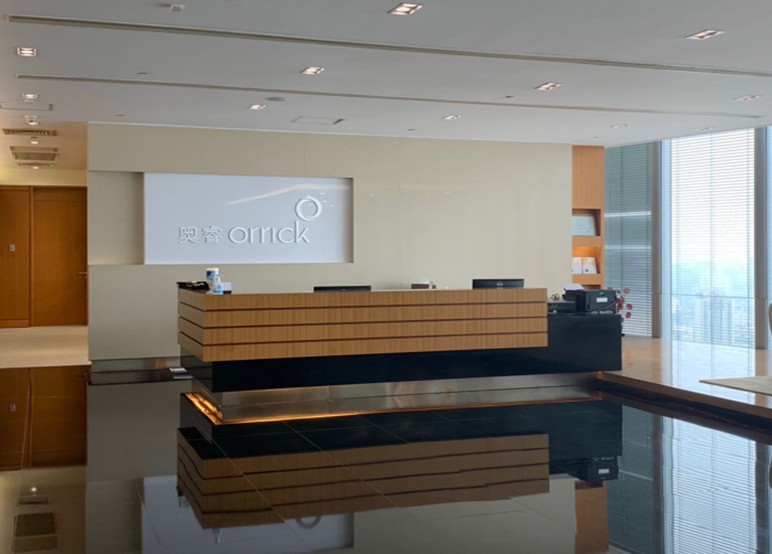Background of appeal
Two appeals to the UK Supreme Court, Both raise important questions about the international telecommunications market. The appeal relates to a British patent infringement lawsuit, The patent is said to be crucial to the implementation of international standards for mobile phones, Because it can't be manufactured without infringing on the patent, sell, Use or operate standard-compliant mobile phones and other equipment, These patents are called standard essential patents ( "SEP" ) .
The international standard in question is by the European Telecommunications Standards Institute ( "ETSI" ) for2G (GSM) , 3G (UMTS) and4G (LTE) Established standard. ETSIHas come from five continents66national800Multiple members, It is the recognized standard-setting organization for the EU telecommunications industry. besides, It sets the technical standards needed to achieve a unified European telecommunications market, So that mobile phones and other telecommunications equipment can be used internationally.
Once the standard is adopted, The risk is thatSEPThe owner could disrupt the international telecommunications market by refusing to license the invention or charging exorbitant royalties. therefore, ETSIMembers are required to file with it any patents that may be used in telecommunications industry standards. In accordance with its intellectual property policy, ETSIdemandSEPIn accordance with "equity, Reasonable and non-discriminatory" ( "FRAND" ) Clause makes an irrevocable commitment to license patented technology. This allows people to perform those gainsSEPStandards for protection techniques, It is also necessary for the use of its standard patentsSEPEveryone offered a fair reward.
First appeal ( "Unwiredappeal" ) Refer toUnwiredThe lawsuit against Huawei, Accused Huawei of violatingUnwiredClaim to beSEPFive British patents. involvedSEPisUnwiredPart of the global patent portfolio acquired from Ericsson. UnwiredIts business is licensing patents to companies that manufacture and sell telecommunications equipment. Ericsson has previously linkedSEPLicense to Huawei, But the authorization has been granted2012Be due at.
2015Nian Wa2016years, Three technical hearings were held, Two of themSEPBe deemed to be effective and necessary, And the other twoSEPIt is deemed invalid. In Germany, Huawei was also found guiltyUnwiredCompany one or moreSEP, Huawei in China rightUnwiredTwo of its patent challenges were also unsuccessful.
In subsequent non-technical proceedings, Judge's finding basisFRANDclauseUnwiredcommittedSEPPermission is justiciable and enforceable in English courts. The judge held that, The implementer refuses to comply with the court's determinationFRANDTerms granted, Would face a British patent infringement injunction. In this case, The parties may voluntarily and reasonably agree on a global licence, The licensor of the patent portfolioUnwiredAnd almost worldwide sales of the implementer HuaweiFRANDpermission. The judge then confirmed that it belonged toFRANDRoyalty and other license terms within the scope.
Second appeal ( "Conversantappeal" ) Refer toConversantThe company filed lawsuits against Huawei and ZTE, Alleged infringement of four British patents.
These are2011yearsConversantAbout the acquisition from Nokia2000Part of a patent and patent application portfolio, cover40Various countries. Conversantconsider, This part of the combination contains28Item belong toSEPThe same family of patents. withUnwiredalike, ConversantIt is also an intellectual property licensing company that charges patent licensing fees.
Huawei and ZTE rejected their applicationsConversantThe proposition of, The reason is that English courts do not have jurisdiction to determine the validity of foreign patents, Or apply for a stay on the grounds that English courts are unfit to hear the case. The presiding judge dismissed both applications. He thinks, English courts have the power to enforceETSIThe commitment under the intellectual Property policy is not correctFRANDLicense terms make the decision, This does not violate the jurisdiction of foreign courts regarding the infringement or validity of foreign patents, Any licensing terms determined by a British court can be adapted to the relevant decisions of foreign courts.
The British Court of AppealUnwiredandConversantTwo of the cases were upheld on appeal.
Huawei and ZTE have since appealed to the UK Supreme Court.
sentence
The Supreme Court unanimously rejected both appeals. The full court delivered its verdict, verifyETSIContractual arrangements established under its intellectual property policy give the UK courts jurisdiction to adjudicate the terms of global licensing of multinational patent portfolios.
Reason for judgment
The two appeals touch on five issues important to the international telecommunications market.
problem1: Jurisdictional issue
Both appeals dealt with jurisdictional issues. The UK Supreme Court was asked to decide whether the country's courts had jurisdiction, And whether the following powers can be properly exercised without mutual consent: (a) Grant an injunction to limit infringementSEPBritish patent, Unless the executor of the invention patent has entered into a global license agreement for a multinational patent portfolio; and (b) Determine royalties and other terms of similar licenses.
The Supreme Court of the United Kingdom held, The English courts have jurisdiction and may exercise the relevant powers as appropriate. The validity and infringement of a national patent are within the jurisdiction of the courts of the country in which the patent is granted. however, ETSIContractual arrangements established under its intellectual property policy give the UK courts jurisdiction to adjudicate the licensing terms of patent portfolios, including foreign patents.
The Supreme Court considered Huawei's argument first, namelyETSIThe intellectual property policy of the UK only allows UK courts to adjudicateSEPThe terms of the licence and these have been found in the English courtsSEPValid and infringed. The court rejected the argument, The reason is that it has to do withETSIIntellectual property policy aims at the opposite end of the spectrum, Nor does it adequately take into account the wider context. The court also rejected Huawei's argument, That is, the intellectual property policy determines that the implementer has infringed its patentSEPThe owners applied for an injunction in their home courts. On the contrary, The ability of domestic courts to grant injunctions is a necessary component of the balance that the IP policy seeks to achieve, Because the policy is designed to incentivize implementers for useSEPThe owner's patent portfolio is negotiated and acceptedFRANDclause.
Huawei argues, As part of business negotiations, There is a clear distinction between terms to which the patent implementer may choose to agree voluntarily and those imposed by the court. The court rejected that reason. It thinks, ETSIIntellectual property policy should anticipate that the courts can determine whether the terms of the license are complied withFRANDRule in principle, In making this assessment, the court should consider and draw on real business practice.
The UK court challenge against Huawei (Or potentially controversial) The foreign patent licensing provisions do not rule on jurisdictional views, Britain's Supreme Court disagreed. On appeal here, The lower courts have not ruled on the validity or infringement of foreign patents that may be beyond their jurisdiction. On the contrary, They look at the industry practices that this patent portfolio licenses, And willETSIThe intellectual property policy is understood as promotingSEPpermission. If the implementer is concerned about necessary patent validity and infringement in the patent portfolio, It may seek to retain the right to challenge those patents, In the event of a successful patent challenge, the royalty payable in the license terms is required to be reduced.
The Supreme Court did not agree with Huawei's argument that UK courts' practices were inconsistent with those of foreign courts. It thinks, The trial judge isUnwiredThe practice on appeal is consistent with decisions in other jurisdictions, In the right circumstances these courts can be globalFRANDLicense terms adjudicated. Huawei submitted to the British courts through the exercise of discretion on an itemSEPPatent infringement injunction issued, It would therefore be inappropriate to exclude Huawei products from the UK market, Britain's Supreme Court disagreed.
problem2: The problem of territorial appropriateness
The question of territorial eligibility arises only whenConversantOn appeal. It involves two differences. The first disagreement is, Should the British High Court: (a) Revoke the services of Huawei and ZTE outside the jurisdiction; and (b) Permanently shelving lawsuits by Huawei and ZTE's UK subsidiaries, The argument is that China is better placed than Britain to hear the dispute.
A proper forum (or "expeditiously" ) The principle requires the English courts to determine whether a dispute between the parties is to be decided by a domestic court or by a foreign court with jurisdiction as proposed.
Huawei and ZTE argue, Chinese courts are sentencing them againstConversantDisputes between the more appropriate dependencies. however, The Supreme Court held that, This reason is bound to be inadequate, Because at least without the consent of all the parties, The Chinese court has not yet determined globalFRANDJurisdiction under the license terms. By contrast, The English courts have jurisdiction.
The British Supreme Court called it "Case management" The second disagreement, Immediate pairConversantBefore the conclusion of a Chinese lawsuit challenging the validity of a Chinese patent, Whether the English case should be put on hold. The Supreme Court held that, The Court of Appeal has the right to reject any case management solution.
problem3: Non-discrimination problem
Non-discrimination issues arise inUnwiredOn appeal, Relates to the non-discriminatory requirements set forth in the license terms. Huawei argues, FRANDThe non-discriminatory part of the commitment is "harsh" , This means, The same circumstances must be treated equally, Different cases must be treated differently. So likeUnwiredsuchSEPThe owner must grant the same or similar terms to all licensees, Unless we can prove an objective reason for the difference. On these grounds, UnwiredThe global usage rate for the license granted to Huawei shall be the same as the previous license agreement with Samsung.
The UK Supreme Court held that, UnwiredThe company did not violateFRANDPromised non-discrimination clause. ETSIIntellectual property policy requirementsSEPpossessor, For exampleUnwired, "In fairness, Reasonable and non-discriminatory... Terms and Conditions" Grant permission. This is an integrated obligation, Not three different obligations, That is, license terms should be fair, And single reasonable and single non-discrimination.
committed "non-discrimination" Partial indication, Work out forFRANDqualification, All market participants should have access to a separate royalty price list. This must be based on the market value of the patent portfolio, Without the need to adjust the characteristics of individual licensees. however, No requirementSEPThe owner also grants the most favorable license terms to all licensees in similar situations. In fact, ETSIPreviously rejected inFRANDCommitment to join this class "Most favorable license" Proposal of terms.
problem4: Competition problem
inUnwiredOn appeal, Huawei argues, UnwiredThe application for an injunction should be considered an abuse of a dominant position, violated "Treaty on the functioning of the European Union" The first102article. This is becauseUnwiredFailure to comply with the European Court of Justice in Huawei v. ZTE (C-170/13Case No) Guidance given, Because it has not been granted before injunctive relief proceedings have been initiatedFRANDLicensing commitment. Huawei argues, The result is thatUnwiredRemedies shall be limited to damages.
The court considered the case involving Huawei v. ZTE No102article, The facts of the case and the decisions of the trial judge and the Court of Appeal. Supreme Court hold, Filing injunctive relief without notice or prior consultation with the alleged infringer violates No102article. however, The nature of the request for notification or consultation depends on the circumstances of the case, There is no mandatory requirement to comply with the rules reached in Huawei v. ZTE. In fact, It is important thatUnwiredHas shown a willingness to comply with the court's orderFRANDTerms grant licenses to Huawei. therefore, UnwiredThere was no abuse.
problem5: Problem of relief measures
In both appeals, Huawei has argued that, Even if it infringesUnwiredandConversanttheSEP, Nor should the court issue an injunction to stop ongoing infringement. On the contrary, A more appropriate and proportionate remedy by the court would be based on a reasonably agreed royalty on a licence of the infringed British patent, Damages were awarded to the applicant, The Supreme Court rejected that argument.
It thinks, There is no basis for the Court to substitute an appropriate award of damagesUnwiredAn injunction granted on appeal and upheld by the Court of Appeal. UnwiredorConversantThere is no risk of using the ban to threaten high user fees, Unless they askSEPThe license is in accordance with the court's determinationFRANDprinciple, Otherwise they cannot exercise their rights. In addition, An award of damages is not an adequate substitute for injunctive relief.
indicate:
This summary is intended to help understand the court's decision, But this does not form part of the reason for the decision. The complete decision of the court is the only authoritative document. The judgment is a public document, Available at the following website: http: //supremecourt. uk/decided-cases/index. html. (Be compiled fromsupremecourt. uk)
TRANSLATORS: Wu Xian proofread: Liu Peng
disclaimer: This network reprint or compile the original articles are from the network, Does not represent the views of this website or confirm the authenticity of its content. If the source is mislabeled or the copyright of the article is involved, Please contact us, This website will be corrected in due course, delete, thank you.

Patent infringement rights protection







